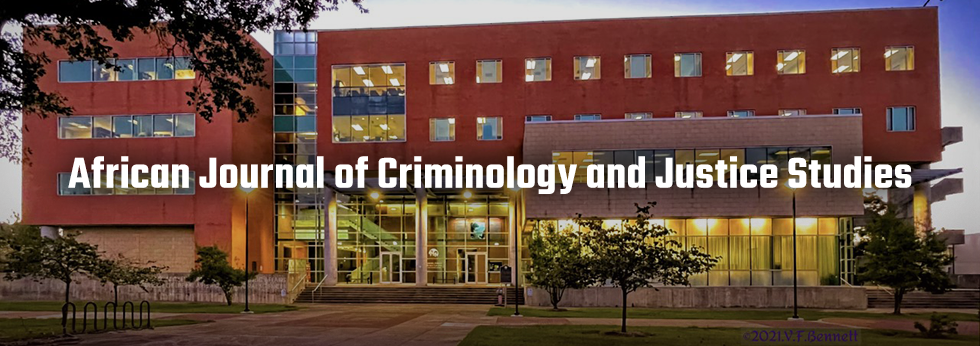Abstract
The study investigates the influence of the family on crime in Nigeria, and emphasizes how conformance/non-conformance to family values have induced an expansion on the spaces of crime. Focusing on the Ibibio people of South-South Nigeria, this qualitative survey study adopts the socio-stuctural explanation of crime. Relying on simple percentage for data analysis, emerging data reveal the notion that familism emphasizes loyalty, trust, integrity, unity, progress and defence of family values. It notes that the changing societal attitudes to family values have led to the emergence of new spaces of crime. The paper concludes that police deployment, the resort to self-help and enforcement of conformity reactionary to the emerging crime problem have induced the emergence of new frontiers of anti-social activities which are not explicitly mainstreamed within extant crime management realities. It recommends the imperativeness of proper evolution of the criminal justice system for coping with the emerging trends
Recommended Citation
Brown, Aniekan S. and Akpan, Uduot
(2020)
"Familism and Crime in Nigeria: Exploring Family Conduct and Implication on Expanding New Spaces of Crime in Akwa Ibom State,"
African Journal of Criminology and Justice Studies: Vol. 13:
Iss.
1, Article 6.
Available at:
https://digitalscholarship.tsu.edu/ajcjs/vol13/iss1/6


